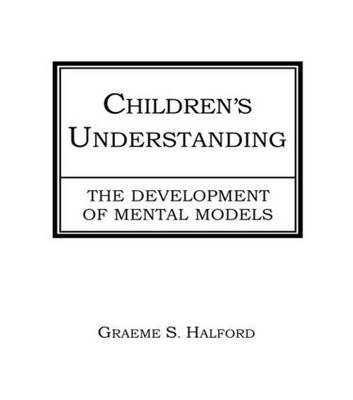This work argues that cognitive development is experience driven, and processes entailed in acquiring information about the world are analyzed based on recent models of learning and induction. The way information is represented and accessed when performing cognitive tasks is considered paying particular attention to the implications of Parallel Distributed Processing (PDP) models for cognitive development.
The first half of the book contains analyses of human reasoning processes (drawing on PDP models of analogy), development of strategies, and task complexity -- all based on aspects of PDP representations. It is proposed that PDP representations become more differentiated with age, so more vectors can be processed in parallel, with the result that structures of greater complexity can be processed. This model gives an account of previously unexplained difficulties in children's reasoning, including some which were influential in stage theories.
The second half of the book examines processes entailed in some representative cognitive developmental tasks, including transitive inference, deductive inference (categorical syllogisms), hypothesis testing, learning set acquisition, acquisition and transfer of relational structures, humor, hierarchical classification and inclusion, understanding of quantity, arithmetic word problems, algebra, conservation, mechanics, and the concept of mind. Process accounts of tasks are emphasized, based on applications of recent developments in cognitive science.
- ISBN10 0805812334
- ISBN13 9780805812336
- Publish Date 1 February 1993
- Publish Status Out of Stock
- Out of Print 2 October 2009
- Publish Country US
- Publisher Taylor & Francis Inc
- Imprint Lawrence Erlbaum Associates Inc
- Format Paperback
- Pages 528
- Language English
